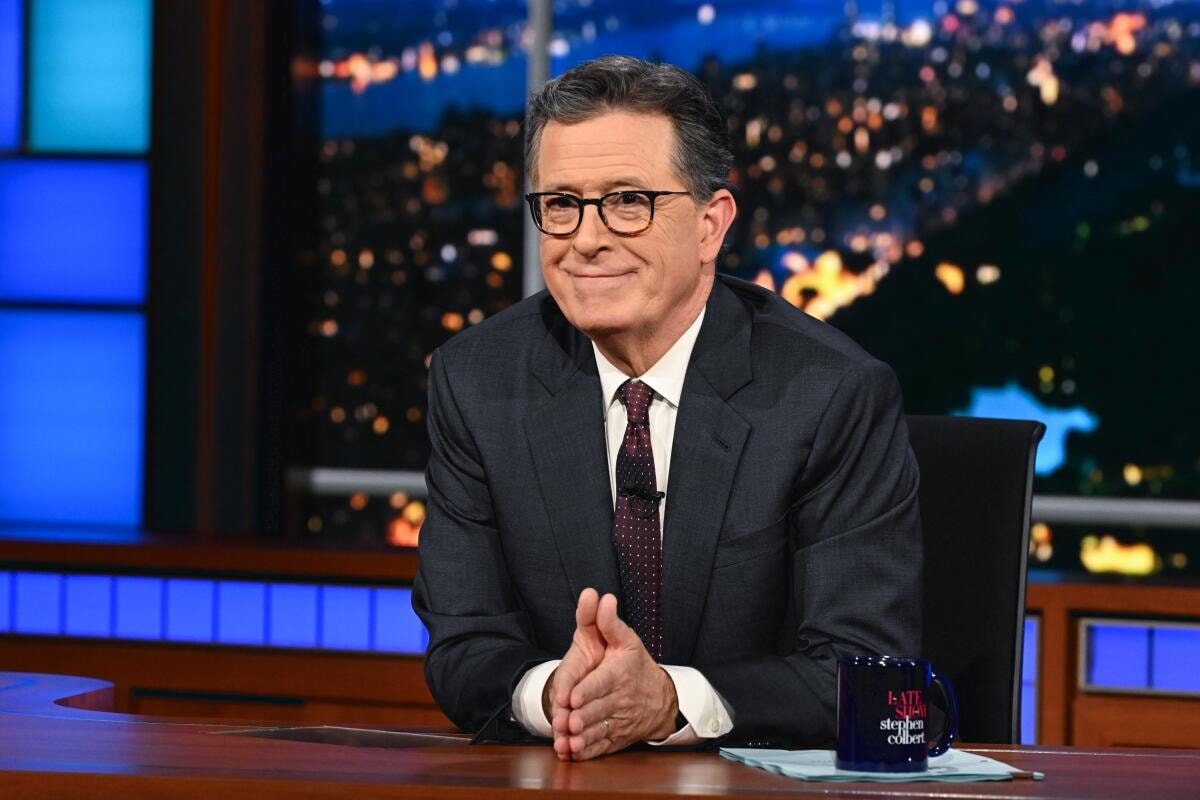
'The Late Show With Stephen Colbert' Cancelled by CBS & Will End May 2026
An end of an era.
Published July 21, 2025
Advertisement
Advertisement
1. The Night the Curtain Dropped
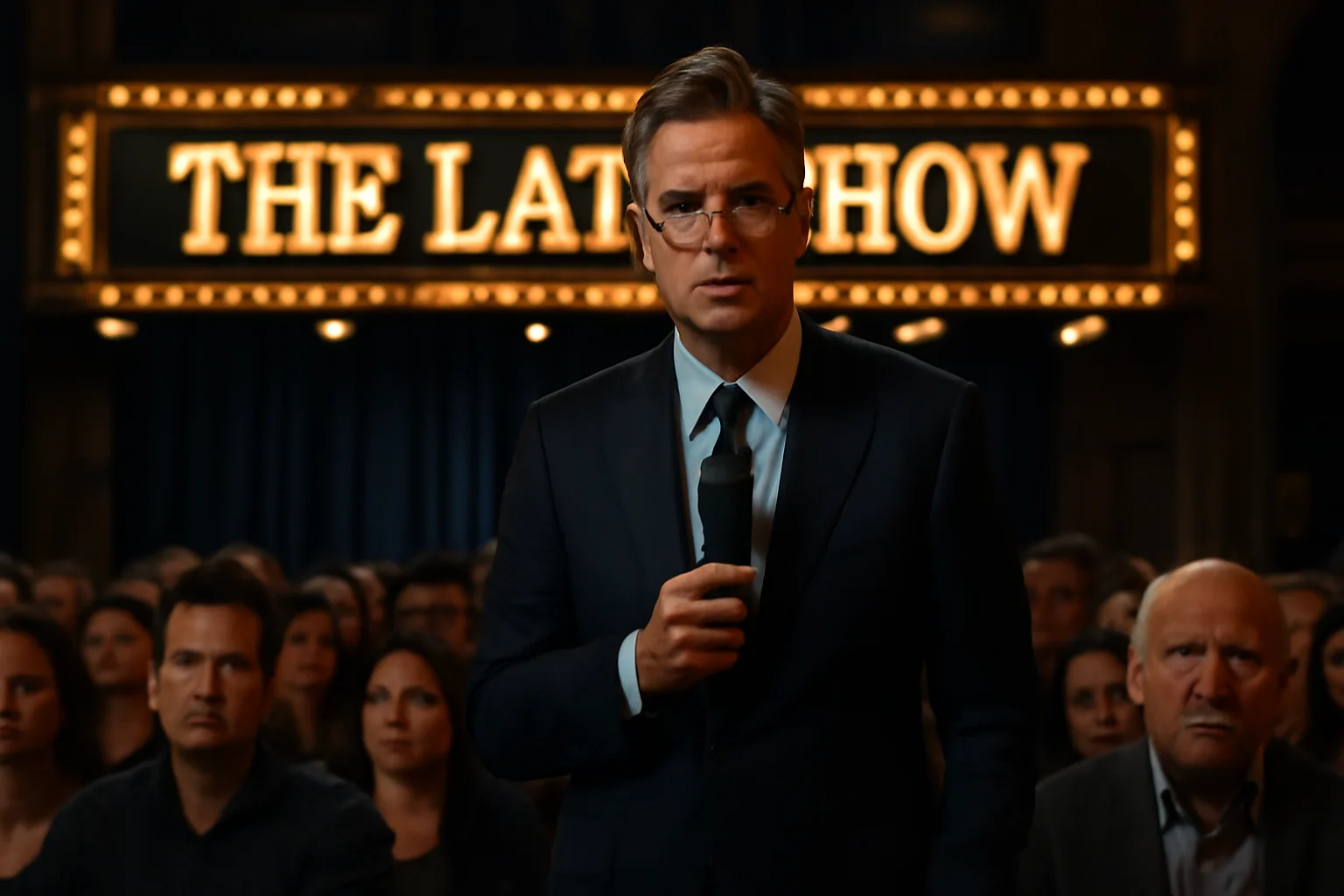
For a decade, “The Late Show with Stephen Colbert” was a constant in the ever-shifting world of late-night television, its laughter echoing nightly from the storied Ed Sullivan Theater. But on July 17, 2025, the audience inside the iconic venue was rocked by news they never expected—Stephen Colbert announced that CBS would be ending the show next May, and not just replacing him, but shutting down the entire “Late Show” franchise for good. A chorus of boos and groans met his revelation, their disbelief mirroring a broader cultural shock. The host, so often quick with a cutting joke or political barb, for once shared the crowd’s disappointment, telling them, “Yeah, I share your feelings.” As the reality of the announcement sank in, the ripple of shock extended far beyond the theater, reaching into the industry and the homes of millions of viewers who had come to see Colbert as a fixture of the national conversation. Networks had always treated shows like “The Late Show” and “The Tonight Show” as pillars, almost as permanent as the companies themselves. Now, that permanence was shattered, and a sense of an ending—of something deeper than just a TV show—hung in the air. Colbert made it clear: no one would be taking over the desk, and this was not a routine change of hosts, but a final curtain for a generation. “It’s not just the end of our show, but it’s the end of ‘The Late Show’ on CBS. I’m not being replaced. This is all just going away.” Viewers wondered if this was truly the final page for late-night TV as they knew it. In that moment, late-night TV entered uncharted territory, and the sense of mystery over what had really caused this seismic change began to take hold.
Advertisement
2. Old Giants, New Pressures
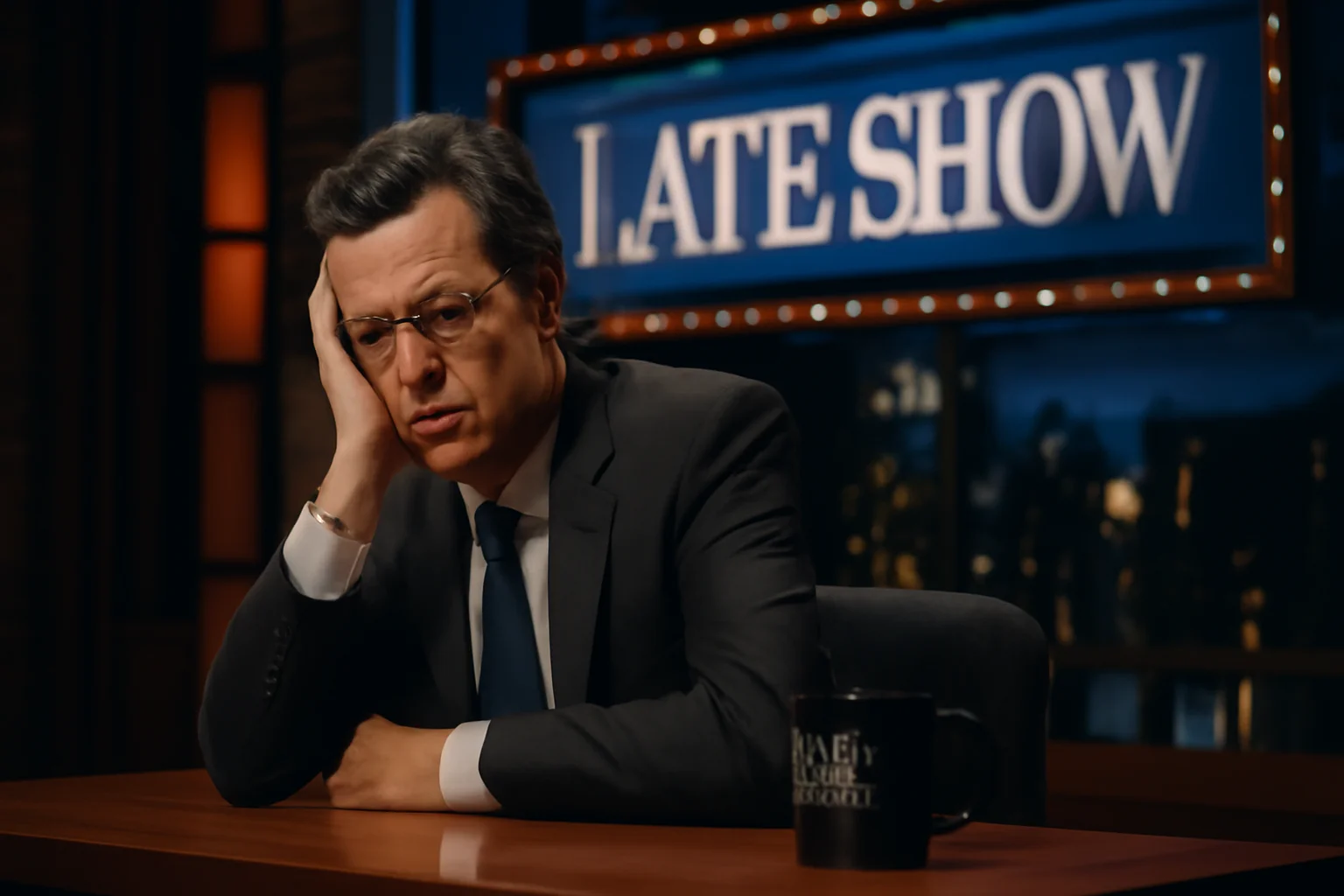
The “Late Show” was more than a television program—it was an institution, an heir to a lineage stretching back to the days of Johnny Carson, David Letterman, and a time when late-night hosts were American royalty. From its 1993 creation under Letterman, to Colbert’s acclaimed takeover in 2015, the show was both a barometer and a driver of the culture, setting the stage for the nightly interplay of celebrity, comedy, and politics. Colbert’s debut brought a fresh, political edge to the format, blending his comic roots with searing commentary on the state of the nation. Night after night, his monologues skewered leaders, lampooned scandals, and tapped into the anxieties and laughter of a country in flux. But as the years wore on, the ground beneath late-night television began to shift, eroded by changing viewing habits, splintered audiences, and the digital age’s insatiable appetite for novelty. What had once been a reliable juggernaut for CBS grew expensive to maintain and difficult to justify as ratings slipped and ad revenues faded. The reality was hard to ignore: the world that had made “The Late Show” a powerhouse was vanishing, replaced by algorithms and platforms that had no use for tradition. For the first time, even the mighty late-night programs felt vulnerable—exposed to the cold arithmetic of modern entertainment economics. Streaming services nipped at the heels of network giants, while viral clips provided only fleeting consolation for lost live viewership. Amid this new landscape, the show’s future—once as certain as sunrise—became an open question. The tension between legacy and necessity set the stage for the stunning decision that would follow.
Advertisement
3. The Money Behind the Laughter
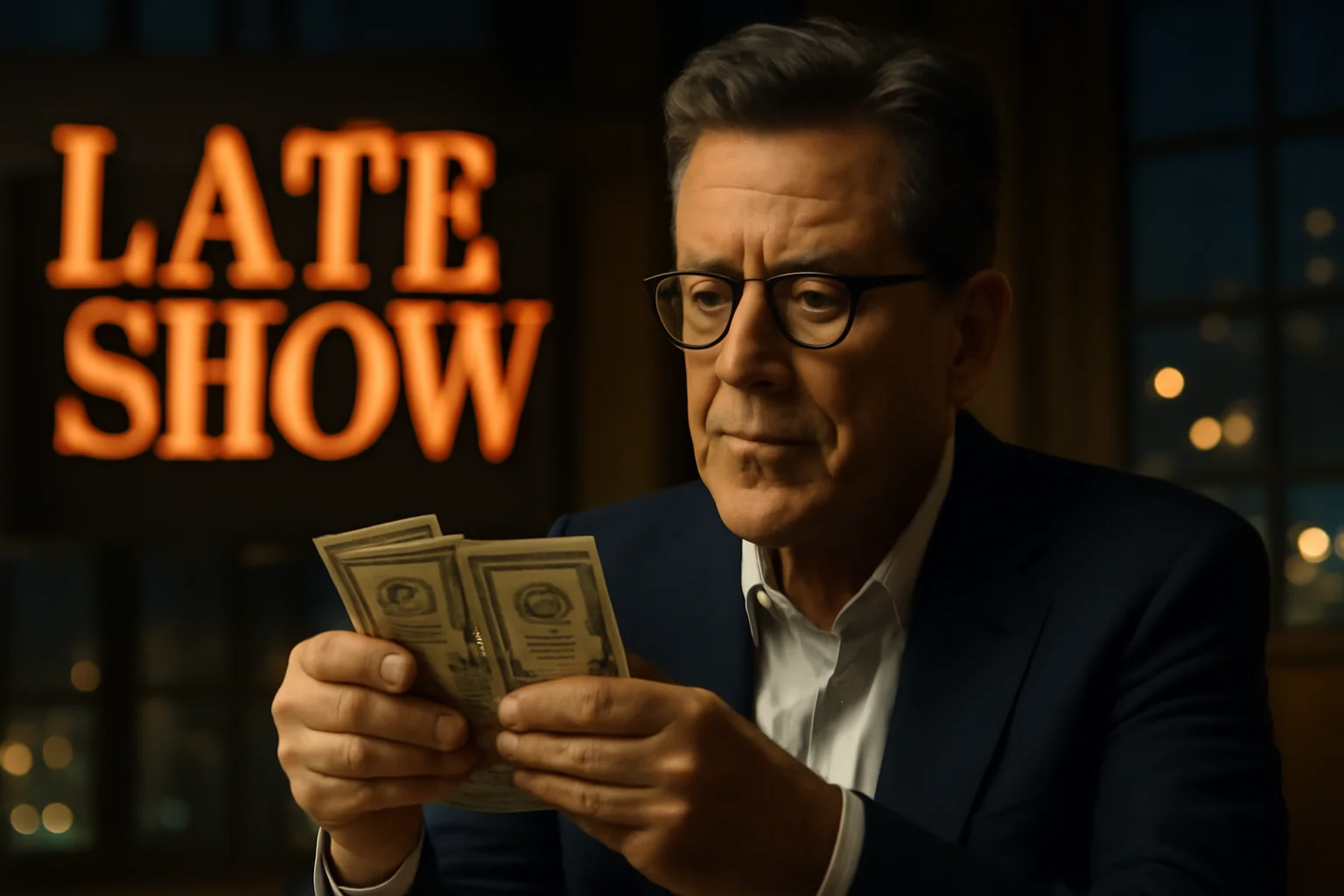
In the aftermath of Colbert’s announcement, CBS and its parent company, Paramount Global, were quick to frame the end of “The Late Show” as a matter of dollars and cents. “This is purely a financial decision against a challenging backdrop in late night,” read the official line from executives, who insisted the cancellation had nothing to do with performance, content, or politics. Networks pointed to plummeting ad revenues, the spiraling costs of star-driven productions, and an audience that had fragmented beyond recognition. Guideline, an ad data firm, reported that late-night ad revenue had been slashed in half over the past six years, from $439 million in 2018 to just $220 million in 2024. Even as Colbert consistently won his timeslot and led the late-night ratings, the math no longer worked. Rival hosts Jimmy Fallon and Jimmy Kimmel had seen their numbers tumble as well, and other iconic franchises were shuttered or stripped down to bare bones. The monologue-and-band formula, so familiar for decades, was now viewed by many as a financial liability. CBS had already axed “After Midnight” and watched as NBC trimmed nights from “The Tonight Show.” It was, as executives called it, an “agonizing decision”—but one they believed to be unavoidable. Yet as these explanations circulated, whispers grew that the truth might not be so simple, and that money alone could not explain the whole story.
Advertisement
4. Rumors in the Wings
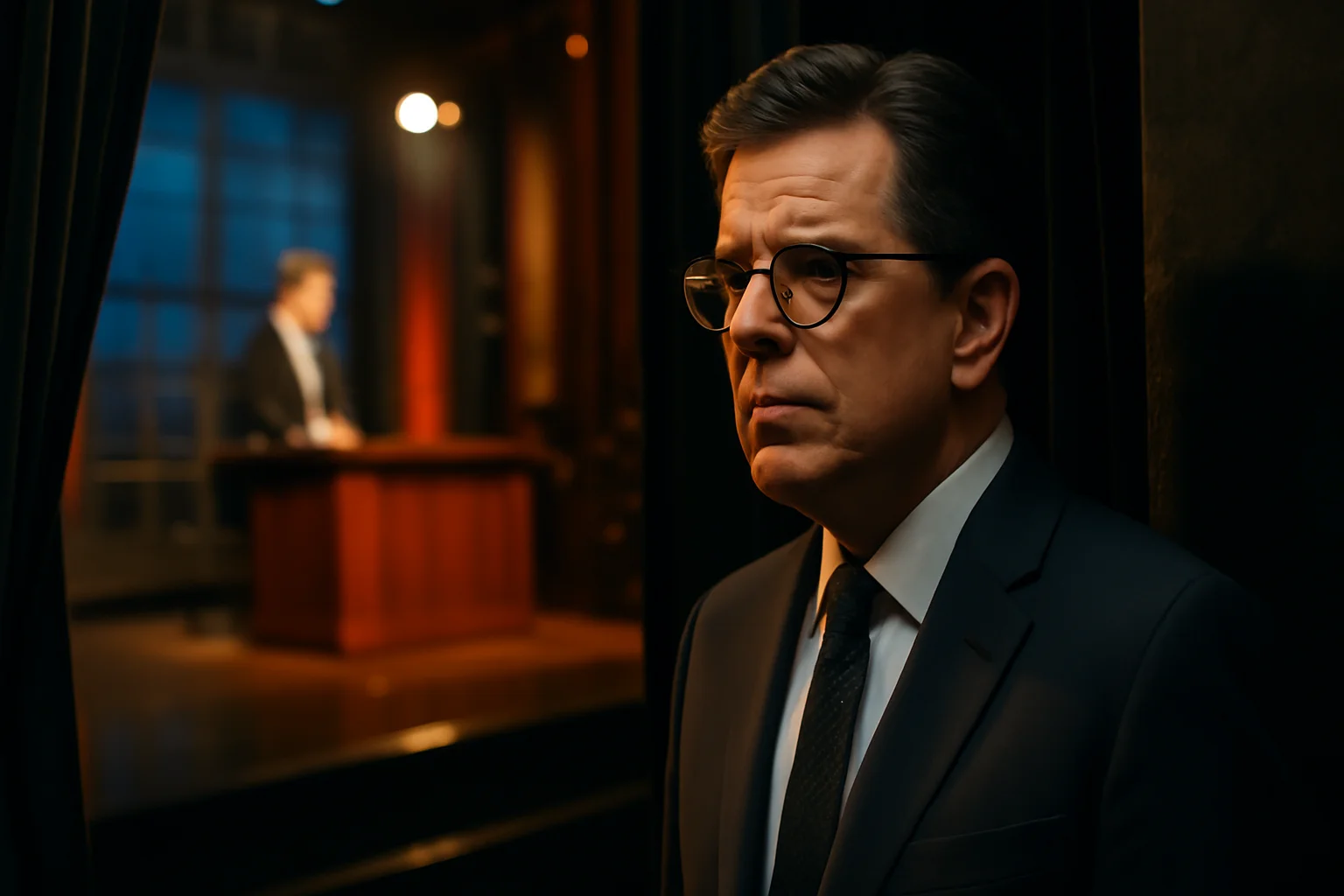
As the official explanation spread, skeptics were quick to ask whether finances were really the sole reason for Colbert’s abrupt exit. The timing of the cancellation, just days after Colbert had sharply criticized Paramount’s $16 million legal settlement with former President Trump, ignited suspicions of political pressure. Colbert’s monologue, laced with references to “big fat bribes” and his disillusionment with his own network, cast a long shadow over the financial narrative. Two U.S. senators, Adam Schiff and Elizabeth Warren, demanded transparency, insisting the public “deserves to know” if politics played a part. CBS and Paramount found themselves caught between public statements and the optics of a decision that, coincidentally or not, seemed to silence one of Trump’s most persistent media critics. Meanwhile, the network’s impending $8.4 billion merger with Skydance Media—a deal requiring regulatory approval from the Trump administration—fueled speculation that Colbert’s fate was tied to broader machinations. Even CBS insiders, speaking anonymously, admitted that the “optics would cause all manner of controversy.” Colbert, who had often turned his desk into a pulpit for anti-Trump satire, now found his own job on the line amid whispers of corporate appeasement. The Writers Guild of America, representing Colbert’s team, called for an investigation, questioning whether the cancellation was a “bribe” to curry political favor. The air of conspiracy deepened, and what began as a story of declining profits became a storm of intrigue, power, and unanswered questions. By the time the next act began, the mystery had fully taken hold.
Advertisement
5. When the Hammer Fell
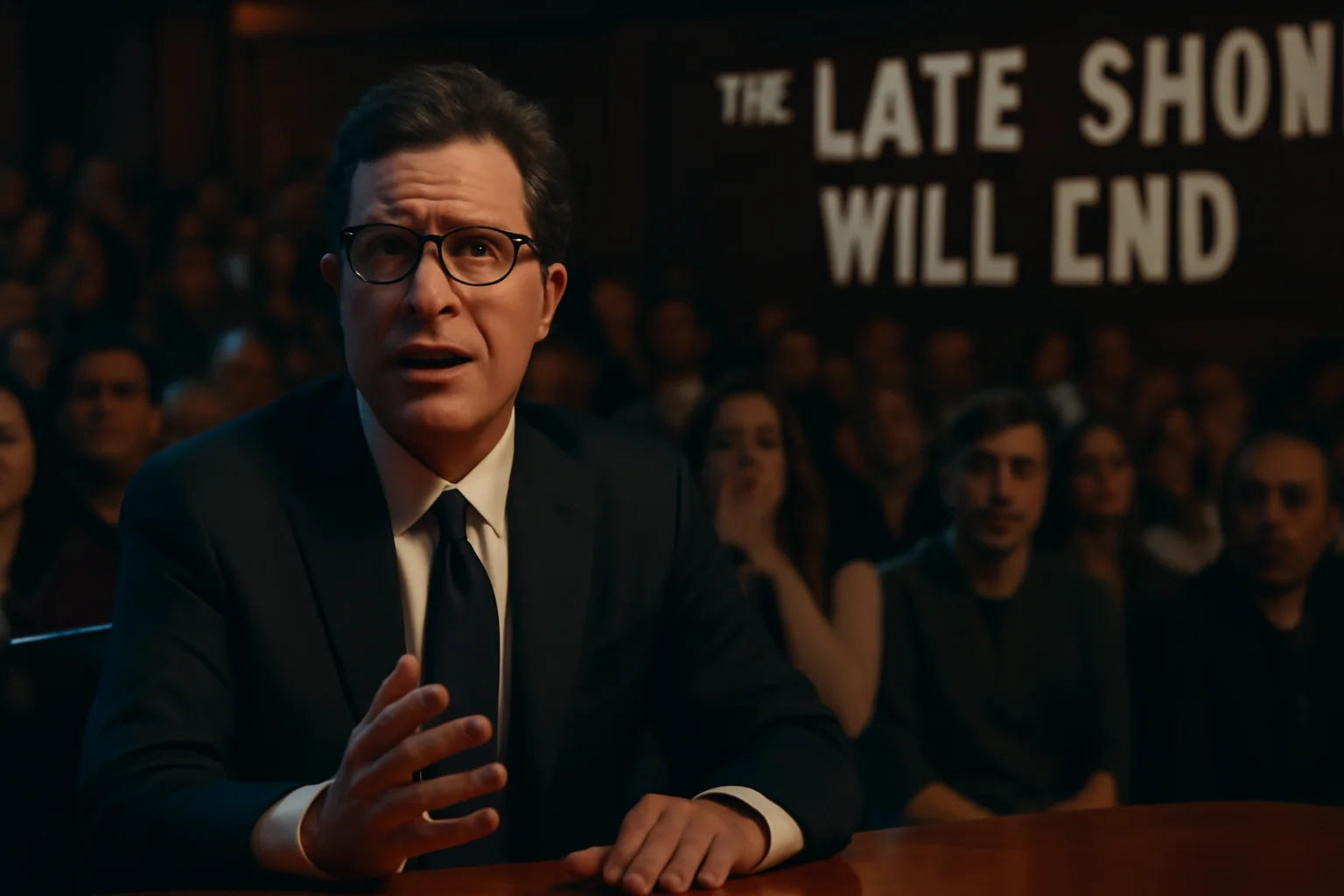
The heart of the drama burst into the open on July 17, 2025, when Stephen Colbert delivered his bombshell on live television. He revealed to a stunned audience that the “Late Show” would not return after May 2026—there would be no handoff, no successor, only silence where nightly laughter had once lived. The audience’s shocked reaction mirrored the disbelief ricocheting across the entertainment world. Colbert made clear that he’d only just learned of the decision himself, his words tinged with both resignation and gratitude for the “fantastic job” he was about to lose. He thanked the 200-person crew, the loyal viewers, and the Tiffany Network for giving him “this chair and this beautiful theater to call home.” Yet beneath the surface, the announcement felt like the final act of a drama years in the making, with unseen forces shaping the outcome. Political, financial, and personal stakes all collided in that moment, with Colbert’s outspokenness about Trump, the Paramount merger, and the future of American comedy echoing throughout the night. The show’s abrupt cancellation forced the industry to reckon with an uncomfortable new reality—nothing, not even the biggest stars or the longest-running franchises, was truly safe anymore. The story had broken wide open, and the nation was left to contemplate what would come next. Colbert’s fate was sealed, but the questions lingered, and the aftershocks reverberated far beyond the Ed Sullivan Theater.
Advertisement
6. Across Hollywood
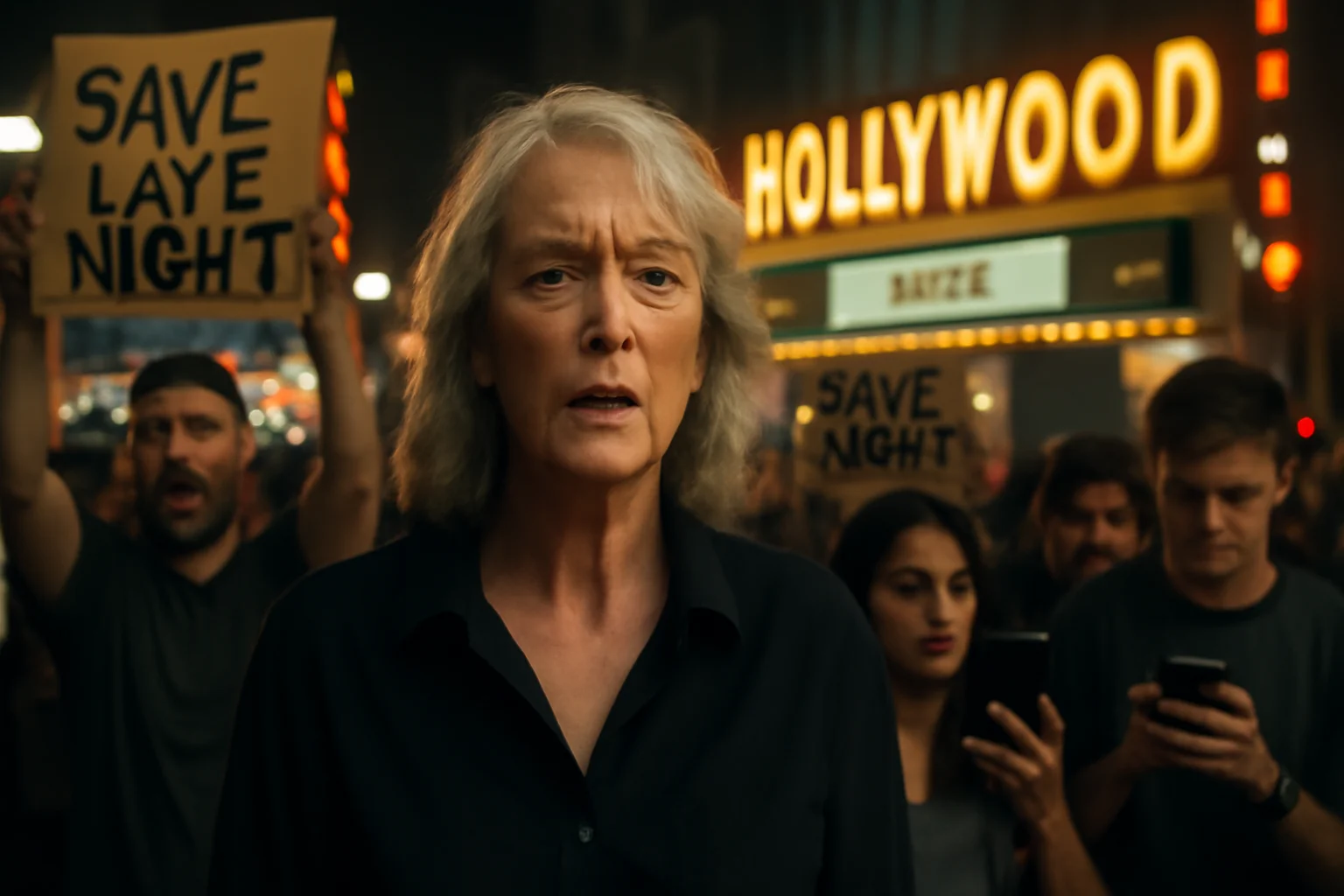
The ripple effect of “The Late Show’s” cancellation sent shockwaves through Hollywood and the broader media landscape, igniting debates about the future of late-night TV. Celebrities, fellow hosts, and industry insiders expressed disbelief and sadness—Jimmy Fallon called Colbert “one of the sharpest, funniest hosts to ever do it,” while Jimmy Kimmel declared his love for Stephen and condemned the decision. Social media erupted with tributes, outrage, and speculation, with prominent guests and longtime fans voicing their frustration over the loss of a cultural institution. Jamie Lee Curtis, set to appear on Colbert’s show soon, decried what she called a silencing of important voices, promising that “we will just get louder.” Paramount and CBS executives issued statements of praise for Colbert and his team, describing the show as a “staple of the nation’s zeitgeist” and expressing gratitude for nine straight seasons of late-night dominance. Behind the scenes, the debate raged: was this a purely financial move, or was something deeper at work—a reckoning for outspoken critics, or simply the end of a business model past its prime? Meanwhile, fans mourned the passing of a unique voice that had defined a decade, shaped conversations, and challenged power from behind a desk. Hollywood’s late-night tradition—once so vital, so ever-present—was now suddenly in jeopardy. As the industry reeled, many wondered which domino would fall next. Was this just the first blow in the collapse of a long-standing cultural order? Or would a new kind of late-night entertainment rise from the ashes?
Advertisement
7. The Old Order
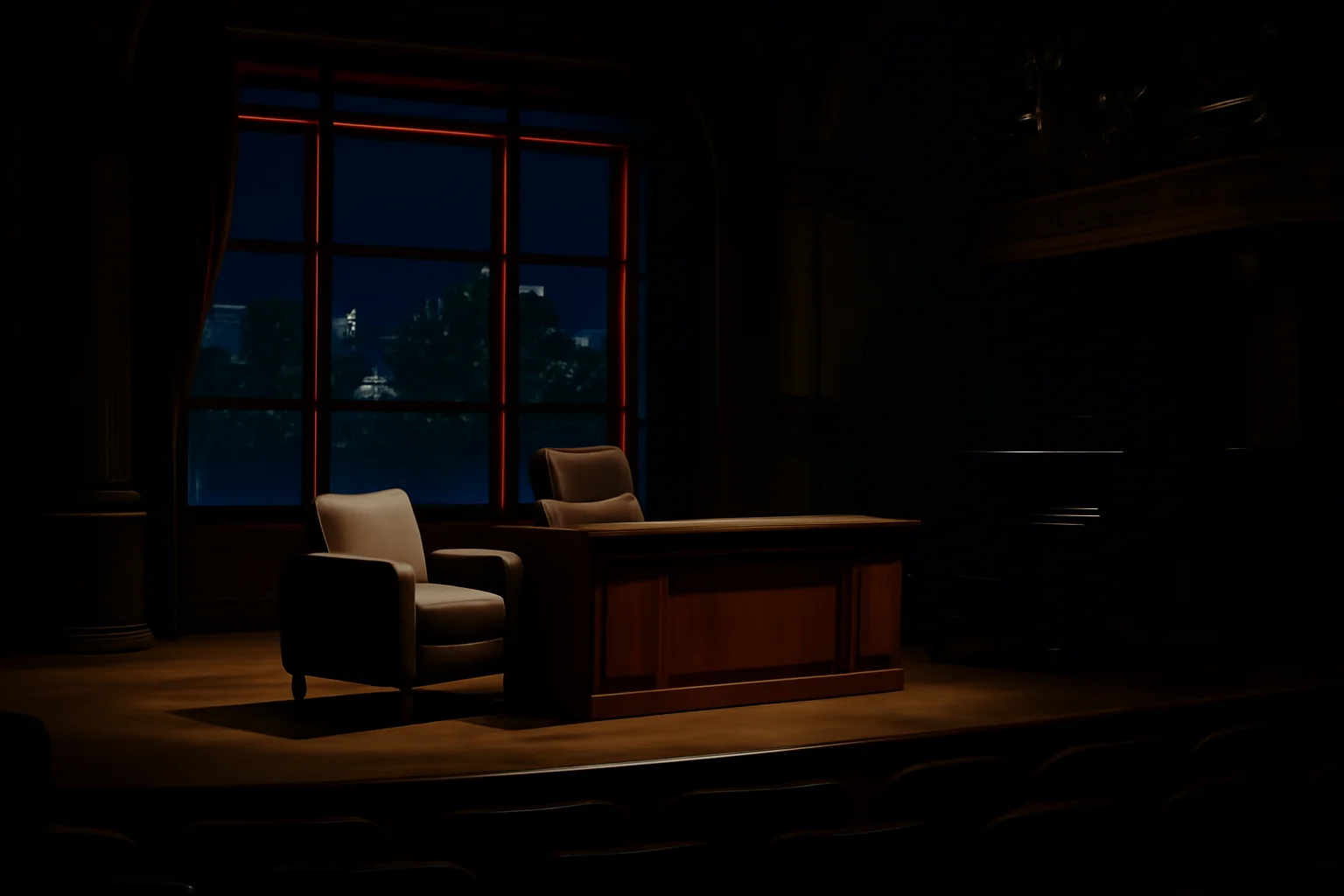
“The Late Show” was not just a product of its time but a bridge between eras, from the days when Letterman set the pace to the Colbert years of political engagement and viral monologues. The show’s guests, from presidents to movie stars, musicians to senators, had come to see the Ed Sullivan Theater as a place where culture and politics collided nightly. Colbert himself had evolved, transforming from a satirical persona on “The Colbert Report” to a trusted commentator with a sharp edge and a loyal following. Each night, his blend of pointed humor, heartfelt interviews, and quick wit cut through the noise of American life. Yet, beneath the surface, the forces that built the late-night empire were eroding. YouTube, TikTok, and streaming giants siphoned off younger viewers, while the traditional format began to feel like a relic. Network TV’s share of the cultural conversation dwindled, even as Colbert’s clips racked up viral numbers online. Other late-night shows, from “After Midnight” to “Late Night with Seth Meyers,” faced cost-cutting, cancellations, and an uncertain future. The era of the monologue, celebrity couch, and in-house band was slipping away—replaced by the lightning pace of digital culture. The once unassailable late-night institution now stood exposed, and the fall of Colbert’s show marked the twilight of a giant. As audiences and creators grappled with what had been lost, the sense of an ending lingered in every empty seat and darkened stage.
Advertisement
8. Colbert’s Legacy in Focus
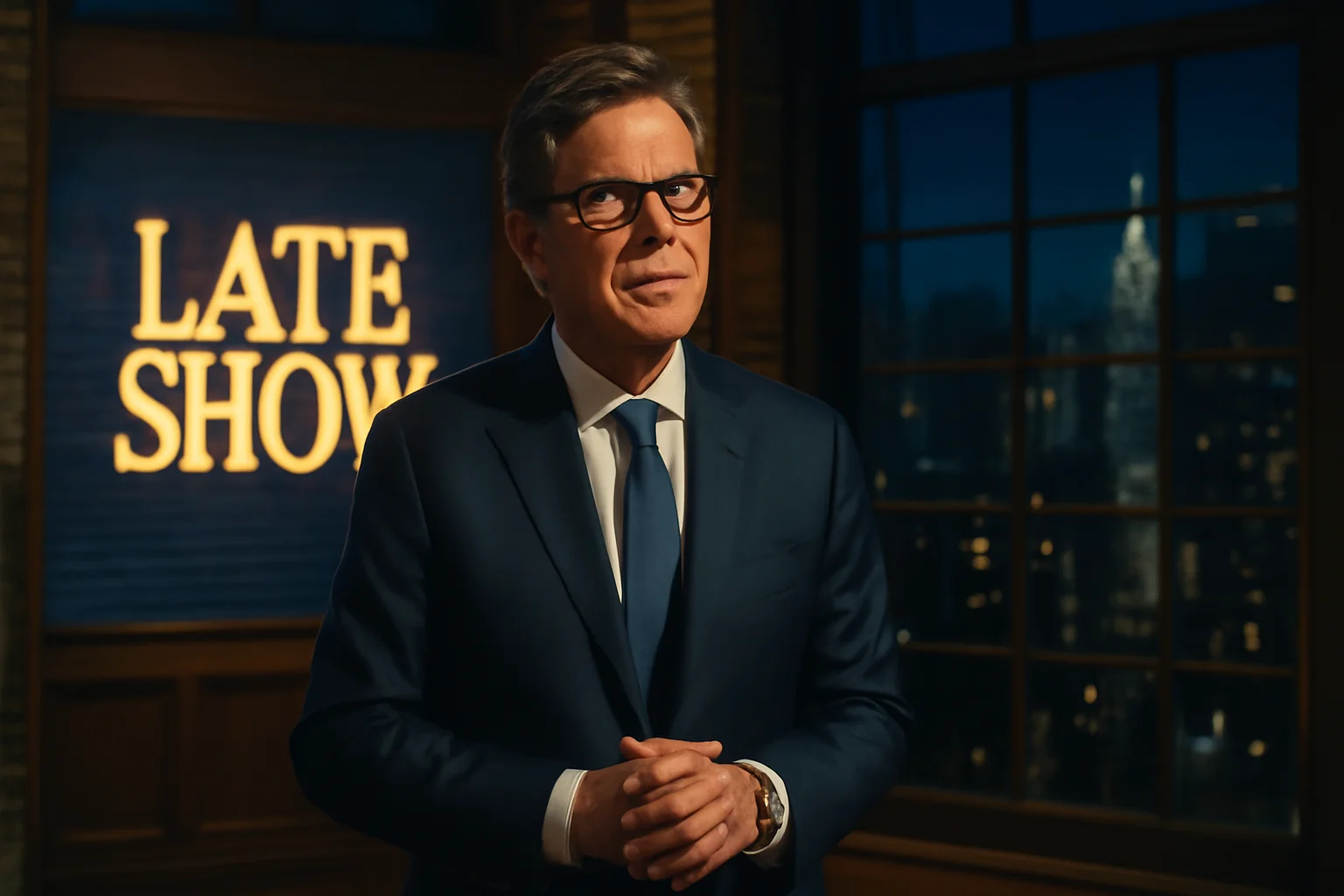
Stephen Colbert’s career was more than a series of nightly monologues; it was a journey through the American psyche, politics, and cultural upheaval. He launched his path in Chicago’s Second City troupe, then found national fame on “The Daily Show” and “The Colbert Report,” where his satirical conservative persona became a pop culture force. Hosting the White House Correspondents Dinner, leading massive rallies with Jon Stewart, and lampooning politicians with equal parts wit and empathy, Colbert built a legacy of fearless truth-telling. When he stepped into Letterman’s shoes in 2015, he didn’t just inherit a show—he reinvented it for a new age. Through awards, viral moments, and pointed social commentary, Colbert made “The Late Show” a nightly town square for debate and catharsis. He remained deeply personal on camera, sharing the grief of losing his father and brothers, the joys of his marriage to Evelyn McGee Colbert, and the quirks of family life. Colbert’s blend of biting satire, heartfelt humanity, and cultural curiosity set him apart, earning him both critical acclaim and a fiercely devoted audience. He championed underdogs, challenged the powerful, and wielded humor as both shield and sword. Colbert’s tenure bridged eras, serving as the final word on the day’s chaos and a mirror to America’s contradictions. Now, as his time at CBS draws to a close, his impact remains indelible—a mark on the fabric of television, politics, and the national conversation. What comes next is uncertain, but the imprint of Colbert’s voice will linger long after the final credits roll.
Advertisement
9. The Mystery That Remains
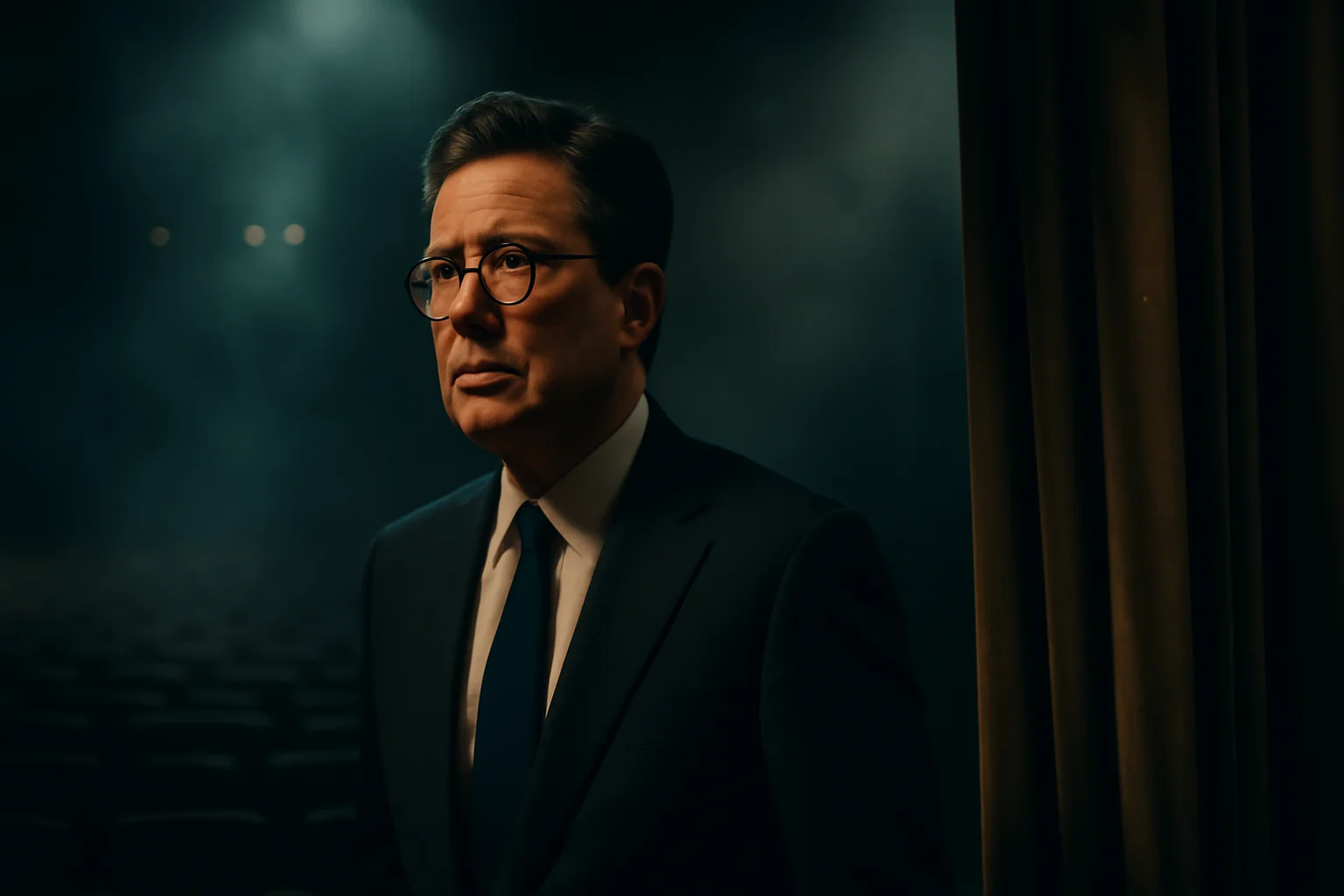
The end of “The Late Show with Stephen Colbert” leaves a trail of questions as complicated as the industry it once ruled. Was this truly a decision made in the cold light of financial realities, or was it the product of boardroom intrigue, political calculation, and cultural upheaval? The convergence of Colbert’s pointed criticisms, Paramount’s settlement with Trump, and the billion-dollar Skydance merger makes for a stew of suspicion and conjecture. Political leaders, media unions, and millions of viewers demand to know what really brought the curtain down on such an influential show. In a world where transparency is rare and corporate motives are often hidden, answers may be slow in coming—if they ever arrive at all. The debate over Colbert’s fate now stands as a symbol of the larger forces reshaping media, comedy, and the public square. Other late-night hosts, networks, and comedians are watching closely, knowing that what happened to Colbert could soon befall anyone. For viewers, the loss is more than just a show—it’s a break with decades of tradition, a rupture in the nightly rhythm that helped define the American experience. As CBS prepares for its last season of “The Late Show,” the industry holds its breath, awaiting the next twist in a story far from finished. Colbert himself is philosophical, grateful for his time and ready to honor his crew, but the air of mystery persists. The last laugh, for now, belongs to the unknown.
Advertisement
10. A Future Unwritten
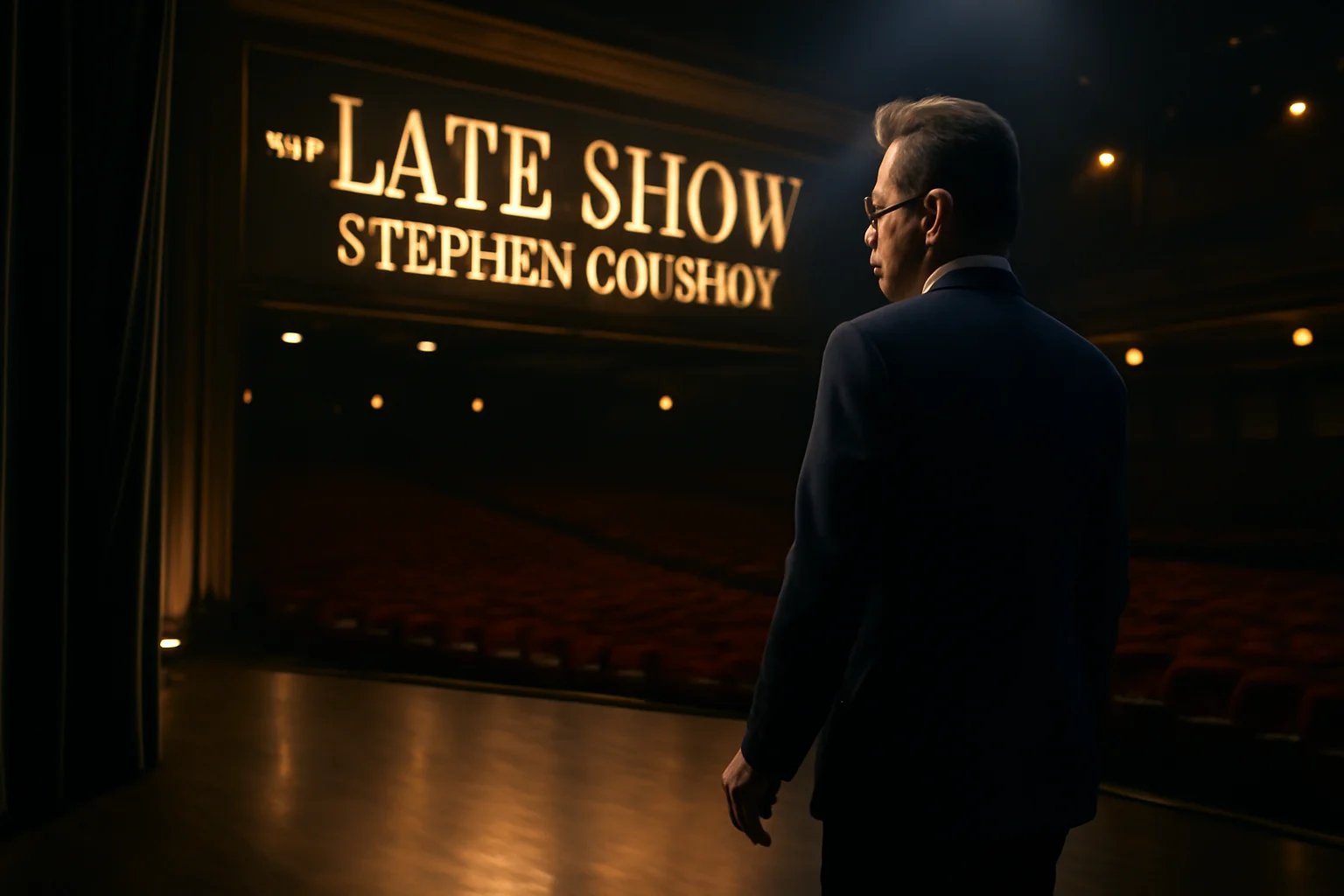
As the credits prepare to roll on “The Late Show with Stephen Colbert,” the entertainment world stands on the threshold of an uncertain new era. Colbert, ever gracious, thanked his crew and audience for the ride, promising to enjoy every last minute of the next ten months. His future remains a blank canvas—will he leap into podcasting, streaming, or something entirely unexpected? The industry that once crowned kings and made legends now faces its own reckoning, as streaming and digital media rewrite every rule. Hollywood’s late-night circuit, long the playground of sharp minds and big personalities, must adapt or fade into memory. For viewers, the departure of Colbert is both an ending and a challenge: where will the next voice come from, and what will the new late-night sound like? Networks weigh their options, creators brainstorm new formats, and audiences scatter across platforms, searching for connection in an age of endless choice. Through it all, the questions linger—about power, influence, money, and the kind of comedy that matters most in turbulent times. Colbert’s final episodes will be a celebration and a farewell, but also a call to reinvention for all who remain. Whatever happens next, the echoes of this moment will reverberate in studios, boardrooms, and living rooms for years to come. A giant has fallen, but the search for meaning, laughter, and truth continues, as ever, long after the stage goes dark.
Advertisement
Read This Next
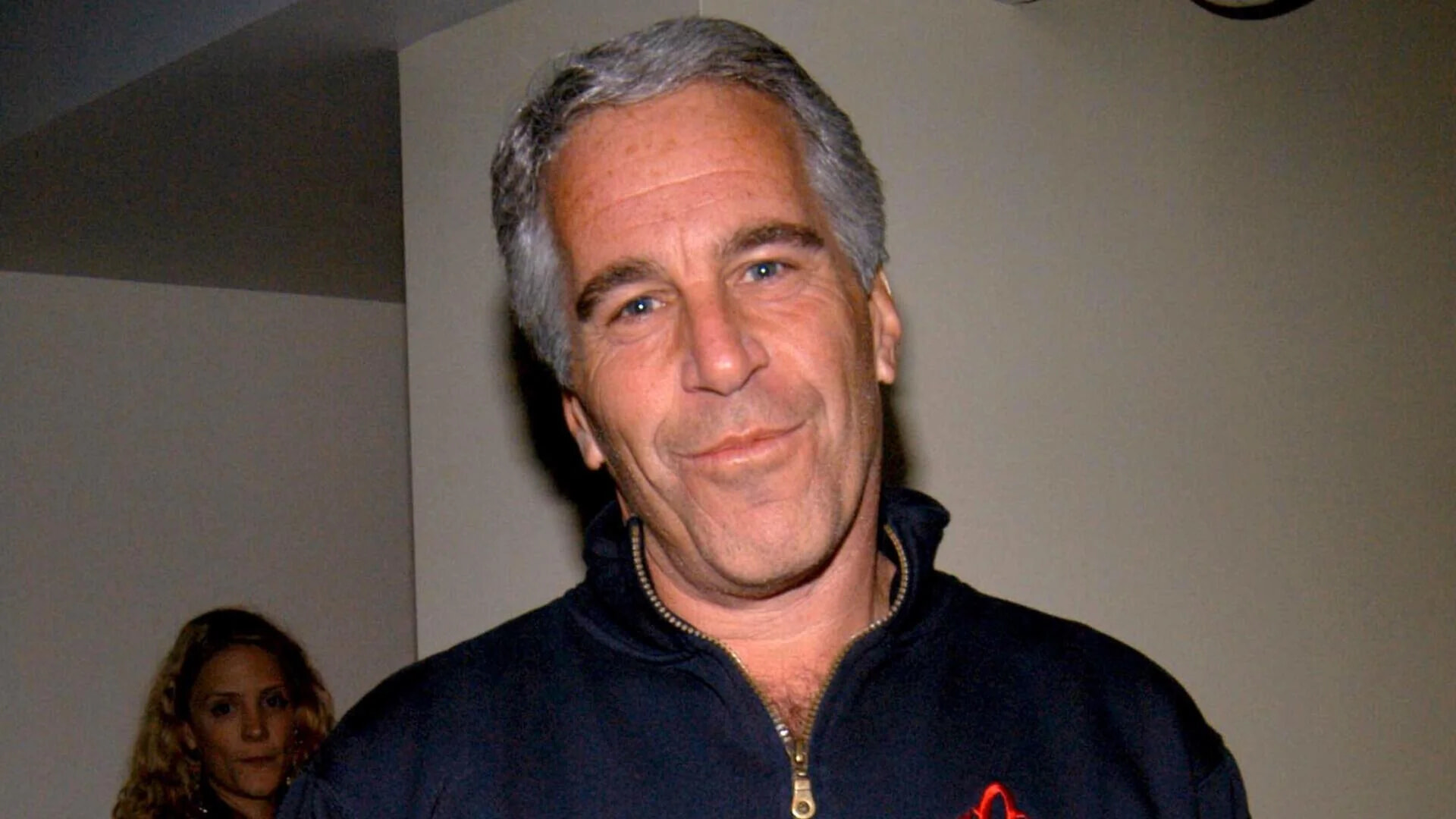
The "Raw" Epstein Prison Video Has Almost 3 Minutes Cut Out
Surprise, surprise.
Advertisement
Advertisement
You May Also Like





